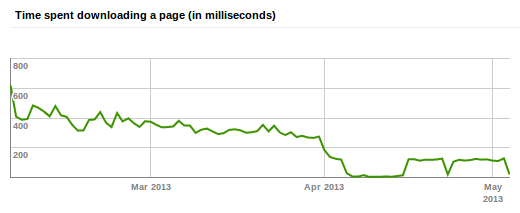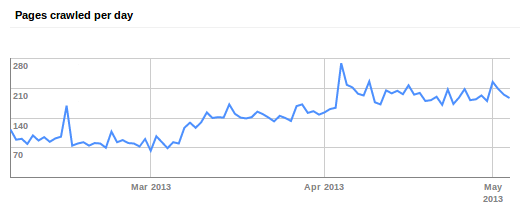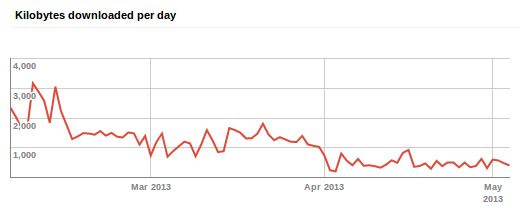New home for this site
Since early April 2013 this blog has moved from a shared hosting environment to a VPS.
Puppet
Ever since the deployment knowledge sharing session I attended in 2011, I have fallen in love with Puppet. About three months later I started to use it in my day job. Unfortunately the investment to completely provision our server with Puppet would be too high compared to what we would gain.
But nothing stopped me from doing just that with my own VPS… So the box this site now runs on, is completely configured using Puppet. The only thing that I have not handled (yet?) is the actual content of this site. That is a separate process handled by an Acrylamid task which I have to run after provisioning the server.
To accomplish this, I have a directory which contains the following:
.
├── install.sh
├── manifests
│ └── atlanta.pp
└── modules
├── firewall
├── ...
└── webserver
The install.sh script contains these lines:
apt-get update && apt-get -y upgrade
apt-get -y install puppet
puppet apply --modulepath=./modules manifests/atlanta.pp
So all I need to do is scp this directory to the VPS and run the
install.sh script and the server is ready. A quick “acrylamid dp atlanta” command later and I am done. The whole process takes only a
few minutes.
The process
Most of the Puppet configuration was created and tested locally. To do this I have a Vagrant box (which uses VirtualBox) with almost the same setup as the VPS. I am using Ubuntu 12.04 64-bit on both the VPS and the Vagrant box, but after a reinstall (before I run Puppet) the VPS is still configured a bit different than the Vagrant box. So I had to make some tweaks to the Puppet configuration after trying it out on the VPS.
Once I was satisfied with the result, I started with a fresh install of the VPS, ran Puppet and copied the content of this site over. A small DNS change later and I was up and running. (Since I have a static site and use Disqus for commenting I did not even have to worry about the DNS change propagation time.)
What does Google think?
My main reason to move from shared hosting to a VPS was to get more control over the environment and get more freedom. Still, better performance also would not hurt.
Time to download
This is what I saw in the Google Webmaster Tools:

As you can see, the time to download a page has about halved since April. My initial thought was that this is probably related to the location of the server: the shared hosting environment ran on a server in The Netherlands while the VPS is running in a data centre in Atlanta in the USA. That might make a huge difference if the pages are crawled from the USA.
I did some quick measurements to get some data. To make a long story short: the VPS is indeed a bit faster. There are too many differences between the previous situation on the shared hosting environment and the VPS to be able to tell what caused this difference. But I am happy to see the previous graph none the less.
Other statistics
Besides a change in time to download a page, I also saw that Google crawls more pages a day:

But since there is also an increase in March that I cannot explain, it might be a coincidence that more pages were crawled per day since early April.
What is remarkable is that there is less data downloaded per day while more pages were crawled:

This can—most likely—be explained by changes I made. In the old
shared environment I had no specific configuration to cache
content. On the VPS I have configured Nginx to send an expiry time (by
adding “expires 7d;” to the configuration which sets the appropriate
Expires and Cache-Control headers for the response).
Result
I got what I wanted: my site is running on an environment I can completely control (from the operating system level up that is). This allows for experimentation and perhaps even small side projects.
I also really liked tinkering with Puppet to get everything setup the way I wanted it to. Both the sysadmin side of deciding how I wanted things configured and the ‘developer’ side of achieving that configuration via Puppet were fun.